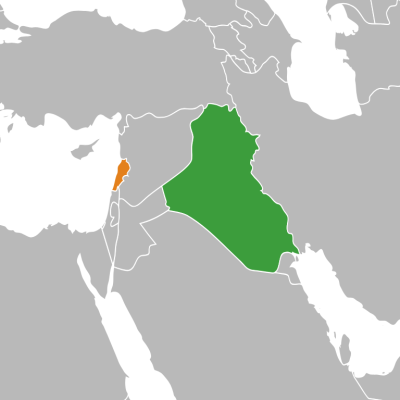Lebanon’s Approach to Conflict Resolution with Israel

In an attempt to create a ceasefire and end the continuous war between Hezbollah and the Israeli army in South Lebanon, the Lebanese government has indicated its preparedness to participate in indirect negotiations with Israel.
This declaration comes against a background of growing hostilities and Israel’s mounting threats.
Appeal of Prime Minister Najib Mikati to the World Community
Prime Minister Najib Mikati called a meeting with ambassadors and UN Security Council member state officials in a notable diplomatic gesture. Mikati argued persuasively in this conference for the Security Council to act more forcefully and decisively to handle what he claimed to be Israeli transgressions and attacks on Lebanese people.
Emphasizing the preservation of innocent lives and civil defense troops working nonstop to lessen the suffering of the Lebanese people, he underlined that the Security Council’s response had to be quick and strong. In denouncing as a breach of international law and a direct threat to the safety and security of Lebanon’s inhabitants, Mikati’s remarks clearly condemned Israel’s ongoing targeting of Lebanese citizens.
His comments underlined the need of the whole community acting immediately to solve these issues and assist Lebanon in calling for a stop to hostilities.
Diplomatic Efforts of Foreign Minister Abdallah Bou Habib
Foreign Minister Abdallah Bou Habib gave a review on the diplomatic talks following the conference. The ambassadors confirmed, he said, their support of the Geneva Conventions, which provide protection during armed conflicts, and of their respect to international rules particularly those pertaining to civilian protection.
Most of the diplomats, Bou Habib noted, subtly denounced the attacks on civilians and underlined their resistance to such policies. He also said that emphasizing complete stop of the attacks replaces the word “de-escalation.” Bou Habib expressed Lebanon’s want for a ceasefire and a stop to the continuous fighting. To reach this aim, he said, the Lebanese government has shown its readiness to negotiate indirectly with Israel.
With particular regard to the targeting of civilians, the prime minister has instructed Lebanon’s UN mission to meet with Security Council members about organizing a session especially targeted on Lebanon. Bou Habib emphasized the great worldwide support for Lebanon, which is helping to significantly stop a full-scale war in the South.
Position of Hezbollah and the Function of the Lebanese State
Bou Habib also spoke on the possible difficulties resulting from Hezbollah’s negotiating posture. He said that although Hezbollah could be against direct negotiations, the Lebanese government is still dedicated to bring about a peace. While Lebanon, a sovereign state, is a member of the United Nations, Hezbollah is not, he underlined.
The government of Lebanon is ready to embrace any workable solution suggested and try to persuade Hezbollah to agree. Bou Habib’s remarks underlined the Lebanese government’s obligation to speak for the interests of the nation and pursue a peaceful settlement.
Israeli Threats and Military Escalations
The call of Lebanon for negotiations is in line with growing Israel’s threats. Former Israeli military cabinet member and National Unity Party leader Benny Gantz reportedly said Israel should take into account starting a war against Lebanon should a ceasefire agreement or prisoner exchange with Hamas fails quickly.
Speaking at the Middle East American Dialogue (MEAD) conference in Washington, Gantz maintained that, even if it would be costly, Israel has to negotiate a deal to release hostages. He cautioned that Israel might have to intensify its military operations in the North to guarantee the safe return of its people should a consensus fail during the next days or weeks.
Gantz’s comments captured the general opinion in Israel that, should diplomatic attempts fail, a more forceful posture could be required. His comment also underlined the possibility of more conflict escalation, which would have major effects on regional stability.
Current Military Advancements and Conflicts
Groundwise, the situation is still erratic. in September 8 night, the Israeli army claimed that in Kfar Kila, Taybeh, Hanin, and Yaroun, its jets and helicopters targeted Hezbollah military facilities and launch locations. The Lebanese Ministry of Health verified that four people, who were subsequently hospitalized, were injured by an Israeli airstrike on Hanin.
Retaliation was claimed by Hezbollah for launching drones aiming at the Shraga barracks close to Acre’s headquarters for the Israeli Golani Brigade and the 621st Egoz Unit. Claiming direct impacts on their targets, the organization also declared an attack on the Jall Al-Alam location using drones. Israeli media said that a residential flat on the 14th level of a North Nahariya building suffered damage from Hezbollah’s drone attack
Conclusion and Future Prospects
The international world stays closely involved as Lebanon negotiates the complicated dynamics of the crisis and tries to have indirect talks with Israel. A ceasefire and maintaining the protection of people among the increasing military operations are the main priorities of efforts.
The strategy of the Lebanese administration shows a dedication to seek diplomatic answers while attending to the pressing necessity for a resolution of the continuous conflict. The circumstances keeps changing and could have effects on international relations as well as regional stability.




